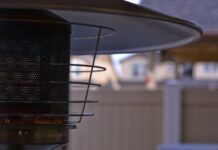Ducted heating systems are essential for keeping homes comfortable during colder months. Like any HVAC equipment, they perform best with regular maintenance — and cleaning is a key part of that. How often you should clean your ducted heating system depends on several factors. Below is a clear guide to help you maintain performance, efficiency, and healthy indoor air.
How Ducted Heating Systems Work
Ducted heating systems use a central unit to warm air and distribute it through a network of ducts and vents. Over time, dust, dirt, pet dander, pollen, and other debris can collect inside the ducts and on components such as the blower, coils, and filters. This buildup can reduce airflow, decrease efficiency, and affect indoor air quality.
Factors That Affect Cleaning Frequency
The frequency of cleaning depends on your situation. Consider these factors when planning maintenance:
- Usage: Systems that run frequently (daily or for long periods) will accumulate more debris and may need cleaning sooner.
- Local environment: Homes in dusty, pollen-heavy, or polluted areas collect contaminants faster.
- Allergies or respiratory concerns: Households with allergy sufferers, asthma, or other respiratory conditions should be more proactive about cleaning.
- Pets: Homes with multiple or shedding pets typically need more frequent cleaning due to hair and dander.
- Filter type and care: Higher-efficiency filters (higher MERV ratings) capture more particles and can reduce how fast ducts get dirty, but filters still need regular inspection and replacement.
Recommended Cleaning and Maintenance Schedule
While individual needs vary, these general recommendations are widely accepted:
- Annual professional inspection and cleaning: Most systems benefit from at least one comprehensive service per year. A full service typically includes cleaning the furnace or air handler, inspecting and cleaning accessible ductwork, checking vents, and servicing mechanical components.
- Seasonal checks: Perform visual and functional inspections before the start of heating season and mid-season. Look for reduced airflow, dust around registers, or odd smells.
- Filter maintenance: Check filters monthly and replace or clean them as needed. As a rule of thumb, replace standard filters every 1–3 months; high-efficiency filters may last longer, but still require regular checks.
- Clean as-needed between services: If you notice signs of contamination (see below), arrange cleaning without waiting for the annual service.
For more information on when duct cleaning may be necessary, see guidance from the U.S. Environmental Protection Agency: Should You Have the Air Ducts in Your Home Cleaned?
Signs Your Ducted Heating System Needs Cleaning
Watch for these warning signs that indicate your system needs attention:
- Reduced airflow: Weaker airflow from vents can signal blocked ducts, a dirty blower, or a clogged filter.
- Unpleasant or musty odors: Persistent smells coming from vents may indicate mold, mildew, or accumulated debris that requires cleaning and possibly disinfection.
- Increased allergy symptoms: More sneezing, coughing, or congestion among household members can point to poor indoor air quality from dirty ducts.
- Visible dust or debris: Noticeable dust collecting around vents or visible buildup inside accessible duct openings is a clear cue to clean.
- Excessive dust after system runs: If dust settles quickly after the system cycles, the ductwork or filters may not be containing particulates effectively.
Practical Tips for Maintaining Your System
- Use the right filter: Choose a filter with an appropriate MERV rating for your system. Higher MERV filters trap more particles but can restrict airflow if your system isn’t designed for them. Consult your HVAC technician or manufacturer.
- Inspect filters monthly: Replace or clean filters more often if you have pets, allergies, or heavy usage.
- Keep vents and returns clear: Don’t block registers with furniture or rugs; this helps maintain proper airflow and reduces pressure on the system.
- Address moisture promptly: Water intrusion, leaks, or condensation can promote mold growth. If you suspect mold, have a professional assess and remediate the issue.
- Hire qualified professionals: Choose certified HVAC technicians or NADCA-certified duct cleaning providers for thorough, safe service.
- Learn about indoor air quality: For guidance on reducing indoor pollutants and improving air quality, resources such as the American Lung Association can be helpful: Clean Air Resources.
When to Call a Professional
Contact a qualified HVAC technician if you notice significant airflow reduction, persistent odors, visible mold, or mechanical issues such as strange noises or frequent cycling. Professionals can inspect hidden duct sections, clean components safely, and recommend corrective actions or upgrades.
Conclusion
Regular cleaning and maintenance keep your ducted heating system efficient, reliable, and healthy. Aim for at least an annual professional service, combine it with seasonal checks and monthly filter inspections, and respond quickly to signs of trouble. Tailor the schedule to your household’s needs — especially if you have pets, allergies, or live in a dusty environment — to enjoy better performance and indoor air quality year-round.












